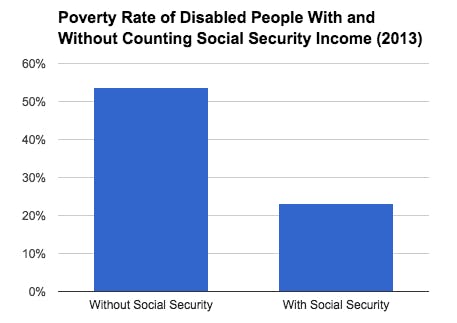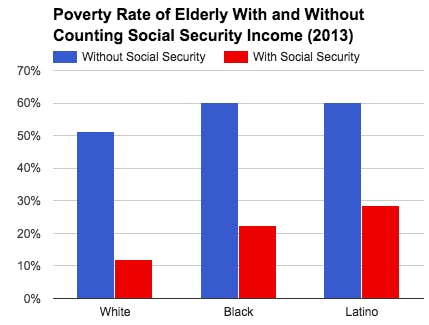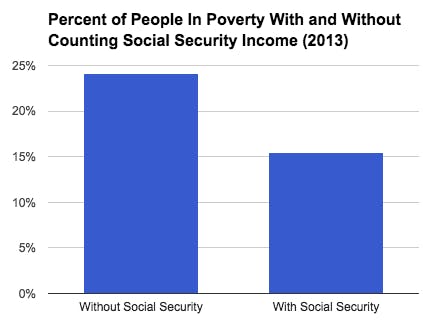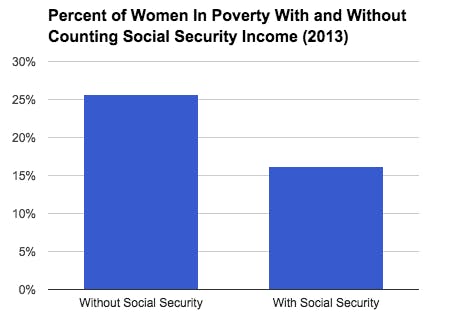Eighty years ago today, President Franklin Delano Roosevelt signed into law the Social Security Act, a piece of legislation that has bequeathed modern America with the bundle of benefits we know as social security. Including benefits for elderly, disabled, bereaved and otherwise vulnerable people, Social Security is one of the most useful and therefore hated programs the United States offers its needy citizens. Republican presidential candidates have been debating whether to slice, shut down, or preserve Social Security, and it will likely swell into an evermore contentious issue as the 2016 presidential election draws near.
But for today, let's celebrate social security in four graphs drawn from census data that demonstrate just how essential this set of benefits has been in keeping millions of Americans out of poverty.




In 2013, Social Security was responsible for dropping the poverty rate of disabled people from over 50 percent to a little over 20 percent. In that same year, Social Security kept the poverty rate of elderly black Americans to just over 20 percent; otherwise, the rate would have been closer to 60 percent. Without Social Security, the overall poverty rate in America would have approached 25 percent, but with Social Security was roughly 15 percent.
